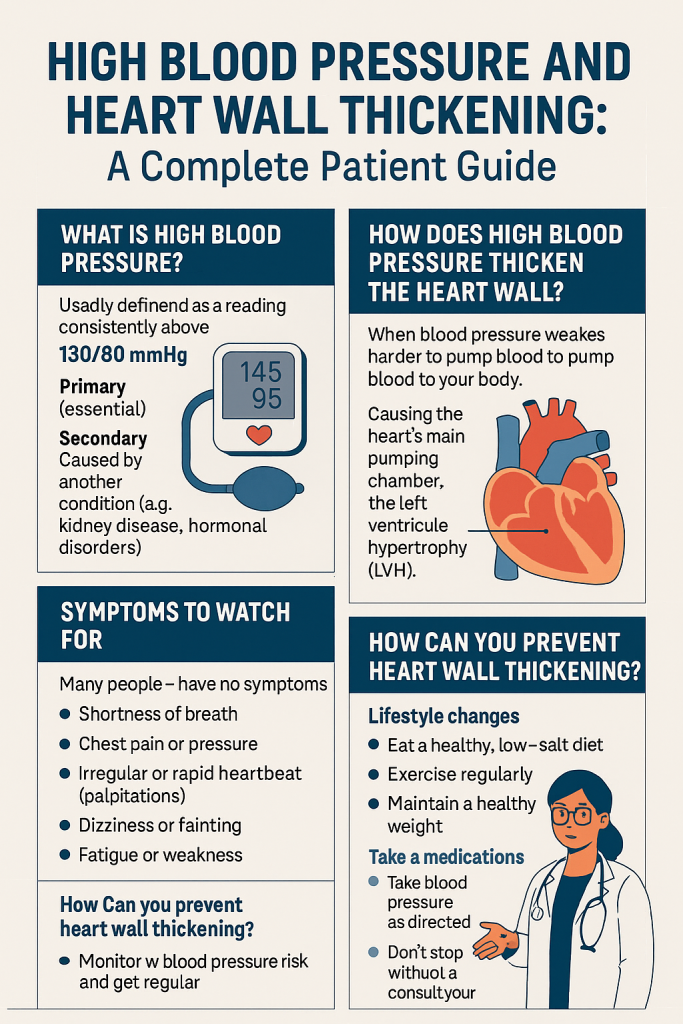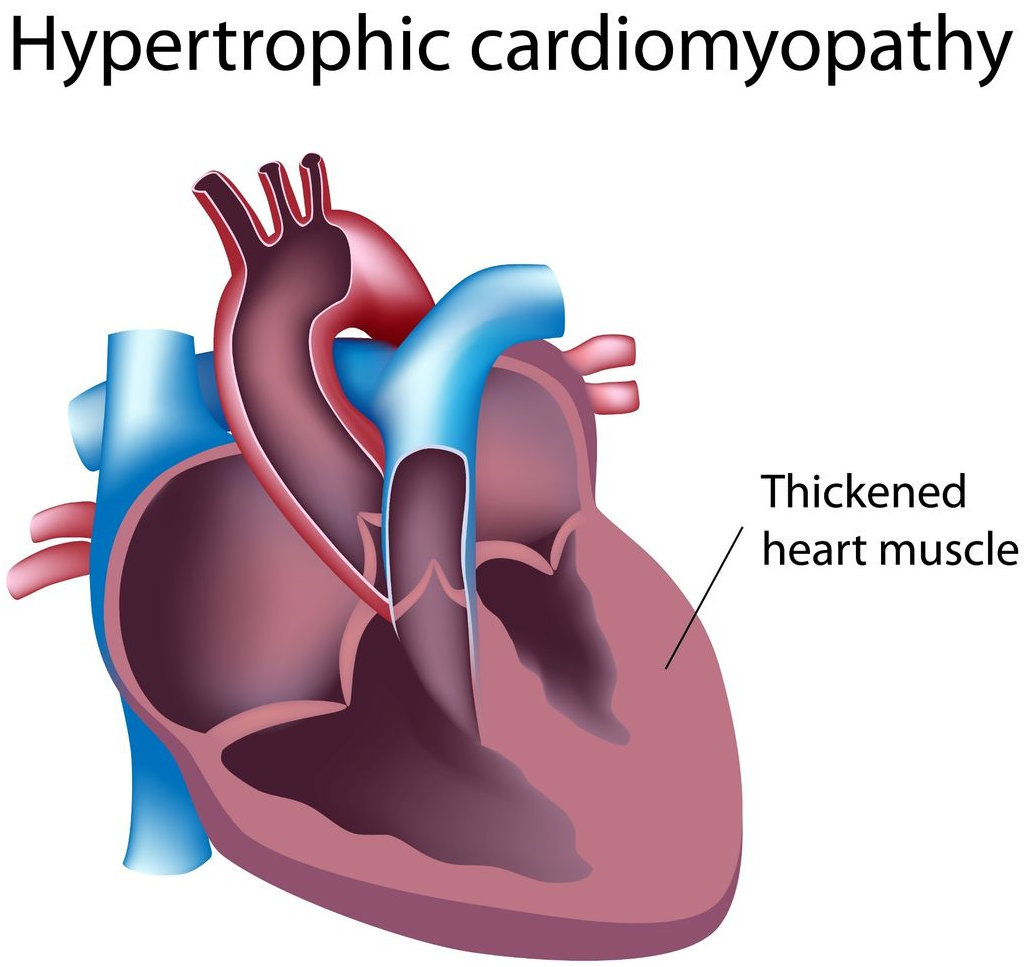High blood pressure (also known as hypertension) is a common condition that can silently damage your body over time. One of the most serious complications is the thickening of the heart wall, especially the left side, known medically as left ventricular hypertrophy (LVH). Understanding this risk, and how to prevent it, is crucial for anyone living with or at risk for high blood pressure.
What Is High Blood Pressure?
Blood pressure is the force of your blood pushing against the walls of your arteries. A reading of 120/80 mmHg is considered normal. High blood pressure is usually defined as a reading consistently above 130/80 mmHg.
- Primary (essential) hypertension: No specific cause; related to genetics, lifestyle.
- Secondary hypertension: Caused by another condition (e.g., kidney disease, hormonal disorders).
Hypertension often has no symptoms, which is why it’s called the “silent killer.”

How Does High Blood Pressure Thicken the Heart Wall?
Your heart is a muscle that pumps blood. When blood pressure is high, your heart has to work harder to pump blood to your body. Over time, just like lifting heavy weights makes arm muscles bigger, this extra work causes the wall of the heart’s main pumping chamber (the left ventricle) to thicken. This is called left ventricular hypertrophy (LVH).
Why Is a Thickened Heart Wall Bad?
- Reduced pumping efficiency: The thickened muscle can become stiff and less able to fill with blood.
- Oxygen demand: A bigger heart muscle needs more oxygen, increasing the risk of angina (chest pain) and heart attacks.
- Electrical problems: Thickened muscle can disrupt the heart’s electrical system, causing arrhythmias (irregular heartbeats).
- Increased risk: People with LVH have a higher risk of heart failure, stroke, and sudden cardiac death.
Symptoms to Watch For
Many people have no symptoms at all, even with a thickened heart wall. If symptoms do develop, they may include:
- Shortness of breath, especially with activity
- Chest pain or pressure
- Irregular or rapid heartbeat (palpitations)
- Dizziness or fainting
- Fatigue, weakness
Note: These symptoms may signal advanced disease. Most people do not feel anything until the condition is serious.
How Is Heart Wall Thickening Diagnosed?
- Electrocardiogram (ECG/EKG): May show changes suggesting LVH.
- Echocardiogram (Heart Ultrasound): The best test. It measures the thickness of the heart walls and how well the heart pumps.
- MRI: Rarely used, but can give very detailed images.
- Routine check-ups: People with high blood pressure should have regular check-ups to monitor for complications.
Who Is Most at Risk?
- People with uncontrolled or long-standing high blood pressure
- Older adults (risk increases with age)
- People with kidney disease
- Those with a family history of heart disease
- People who smoke, are obese, eat a high-salt diet, or are physically inactive
How Can You Prevent Heart Wall Thickening?
The best prevention is to control your blood pressure! Here’s how:
1. Lifestyle Changes
- Eat a healthy, low-salt diet (such as the DASH or Mediterranean diet)
- Exercise regularly (at least 30 minutes most days)
- Maintain a healthy weight
- Limit alcohol and avoid smoking
- Manage stress (meditation, relaxation, hobbies)
2. Take Your Medications
If prescribed, take blood pressure medicines exactly as directed. Common medications include:
- ACE inhibitors
- ARBs
- Beta-blockers
- Calcium channel blockers
- Diuretics
Do not stop your medicine without talking to your doctor!
3. Regular Check-ups
- Monitor your blood pressure at home, if recommended
- Get regular doctor visits and heart check-ups
- Report any new symptoms immediately
What Should I Do If I Have High Blood Pressure?
- Check your blood pressure regularly.
- Follow your doctor’s treatment plan and keep all appointments.
- Adopt heart-healthy habits (diet, exercise, avoid smoking/alcohol).
- Know the warning signs of heart trouble (see symptoms above).
- Talk to your doctor about getting an echocardiogram if you have long-standing or hard-to-control hypertension.
Summary Checklist
- Check your blood pressure regularly
- Take your medicines as prescribed
- Eat a low-salt, balanced diet
- Stay physically active
- Get regular heart check-ups
- Avoid smoking and limit alcohol
- Watch for symptoms, but remember LVH is often silent
When to Call Your Doctor
Contact your healthcare provider immediately if you experience:
- Chest pain or pressure
- Severe shortness of breath
- Fainting or severe dizziness
- Palpitations or irregular heartbeat
These could be signs of serious heart complications.
Final Words
High blood pressure can silently thicken your heart wall and raise your risk of heart attack, heart failure, and stroke. But with good management, regular check-ups, and heart-healthy habits, you can dramatically lower your risk and protect your heart for years to come.
Take charge of your blood pressure — your heart will thank you!
